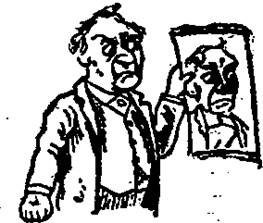This article has been transcribed from a copy of the Cardiff Times in the online collection of scanned Welsh newspapers 1804-1919 in the National Library of Wales, with grateful recognition of the free access accorded to all readers. Paragraph breaks have been introduced for easier reading.
Samuel’s misanthropic advice on birthday presents allows him to make satirical comments widely across society. The tickets for a straight-laced clergyman for the Gaiety burlesque enables a reference to the Gaiety Theatre in London, whose is founder, John Holingshead, described himself as a ‘licensed dealer in legs, short skirts, French adaptations, Shakespeare, taste and musical glasses’. The works of the French novelist (Charles) Paul de Kock (1793-1871) were regarded in Britain as vulgar and indelicate. ‘Two lovely back eyes’ was a song by Charles Coborn (Colin Whitton McCallum, 1852–1945), also known for the songs ‘Two Lovely Black Eyes’ and ‘The Man Who Broke the Bank at Monte Carlo.’ Elsewhere Samuel explains the meaning of another target, the ‘masher’ as ‘the sort of young man who fancies that he can overcome and overawe everybody by the potency of his attractions’ (‘On Slang’, 4th May 1889). The formula ‘Know all men by these presents’ opens many legal documents in England and Wales, the ‘presents’, of course, being the contents of the document being read. The brand-name ‘Nicholson’s’, from the brewery founded in Reading in 1840, is still in use in the twenty-first century. — David Skilton

DON’T really see sir, why birthdays should be so closely observed as they are. To speak to a man of his birthday seems to me to be in many cases like reminding him of that which is rather his misfortune than his fault, and to enter upon the subject with a woman who has got into the thirties (especially if she be married) seems to me to be nothing short of cruelty to animals. Many men do not care to remember when they were born; they would like to forget that such a calamity ever befel them; it is good enough for them that they were born some time or other, and that they have many times regretted the fact. Some people have only one birthday, some have a whole lot of them. I know a man who celebrates his birthday every week – and then generally on a Saturday, when he gets his pay, and can honour his birthday adequately – in a liquid form. When his wife, on his return home, mentions to him some such insignificant fact as that he has been sitting in the mud and has come home with someone else's hat, he merely gurgles out, ‘No marrer, m'deah; been shel-shel'bratin' my (hic) b'rthdy.’ I know a popular burlesque actress, too, who has any number of birthdays – several a week sometimes. In her pretty artless little way she is fond of saying to one of the many gentleman admirers who send passionate notes craving an interview round to the stage door, ‘Isn't it singular, Mr Gullible, it is my birthday to morrow [sic]?’ Mr Gullible admits that it is singular; though he doesn't quite know why; but, of course, having expressed ardent admiration for the lady, he feels in a manner bound to do fitting honour to the lady's natal day by making some appropriate offering. The lady has, of course to be careful not to tell the same gentleman of two birthdays in any one year, but this is only one of the trivial faults of her system.

‘Implies that I paint, the nasty, mean thing.’
It is usual to give presents on birthdays – or, rather, to accept them when they are offered. I don't really see why you should give people birthday presents – unless it be to console them for ever having been born at all. A black-edged card of condolence, such as you send a man when he has lost his mother-in-law or a dissipated brother would be much more appropriate. And I would even go further and say that the same rule applies to silver and golden weddings and such-like reapings-up of follies and misfortunes past. A present should always be appropriate – that's what I say; it should always be something that the recipient can make good use of. For instance, if you were in the habit of quarrelling with your wife, and wanted to give her something that would be of service to her, you would naturally, as a man of sense and discrimination give her a knuckle- duster – or a ‘slap’ – no, no, I don’t mean the latter. Give a man something he can wear – if he has a wooden leg, give him a pair of boots; should he be prone to burgling – give him six months – hard! If a girl squints, give her a glass eye; and if she doesn't treat you well, give her the cut. Presents should always be appropriate, I again repeat. lf a man has the lumbago, give him a smack on the back. It is highly probable in such a case that he will return the present with interest. Certain presents peculiarly pertain to certain classes. To a staid clergyman who has won your respect you might most fittingly give a pair of boxing gloves, a free ticket to a Gaiety burlesque, complete set of works of Paul de Koch, or a copy of that classic ditty ‘Two Lovely Black Eyes.’ It is always dangerous to remember that an old maid has a birthday at all, but if it must occur to you, give her a packet of ‘Cat Killer’; a case of razors; a bull dog — or, better still, make her an offer. If you happen to know an elderly gentleman who has lost all his teeth, show your regard by sending-him a few pounds of tough steak. Even if he cannot swallow the latter, it will help him to beguile his leisure, and will exercise his jaws. If you know a public speaker send him a gag, or a challenge, or an invitation to ‘shut up.’ If you would testify the good wishes yon entertain for a masher, send him a stock of brains. If you have none to spare yourself, go and buy some.

‘What miscreant sent this?’
Always send something that will be useful -- if you know a man who is completely bald, send him a comb and brush. He is almost certain to call and thank you, and to give you something — probably a stick. Should gratitude towards your medical adviser well over in your bosom (such things do not often happen, but they are not impossible) send him — well, send him his fees at once, and he will esteem you for over, for doctors don't as a rule get paid for a few years after they have sent in their bill. All these presents bestowed as I have indicated will cause many a thrill of joy in the recipients, which would not be the case did you not study appropriateness. Even to a man with defects you can, by a well-timed present, convey a strong compliment. Thus, if a man have knock-knees, you can pay a strong tribute to his moral qualities by sending him an illuminated scroll with the motto ‘A Friend In-Kneed is a Friend Indeed’ on his birthday. If your friend be a journalist send him a pot of paste and a new pair of scissors. He will accept both the present and compliment, and will probably pay you in kind in his paper the next time he gets a fair chance.

Left: The man who finds his relations very ‘near’ relations. Right: Wha–a–a-t: never take anything except for spanks?’

There is nothing like appropriateness – but I believe I made that remark before. If any man you wish to honour drops his ‘h's,’ send him a lot cut out of a back number of this journal, but don't let him drop his ‘I’s’ on you for some time or you'll have no ‘e's’ for a month or two. To-lady with a bad cold, you might with great credit to yourself, send a birthday present consisting of a bottle of Nicholson's best.[i] You'll soon be a prime favourite amongst your own circle if you only study appropriateness. People will think you almost too good to live – and you may [may] die suddenly some night. If you have poor relations, study their feelings. Do not insult their poverty by sending them a few loads of coals, or a five-pound note, or anything of that sort – send them invitation tickets to a fancy dress ball, or something comforting of that kind. It is surprising what good you can do, in the way of presents, if you only think the matter out a bit. ‘Know all men by these presents,[ii] might be your motto, did, you aspire to be considered a man who studied appropriateness.
Finally, I may say I have a greater pleasure (if anything) in receiving presents than in giving them. I may be singular ill this regard; I don't quite know. Anyhow, send the presents along and try me. If you can't give presents, give up – as I'm going to die.
Last modified 28 January 2022